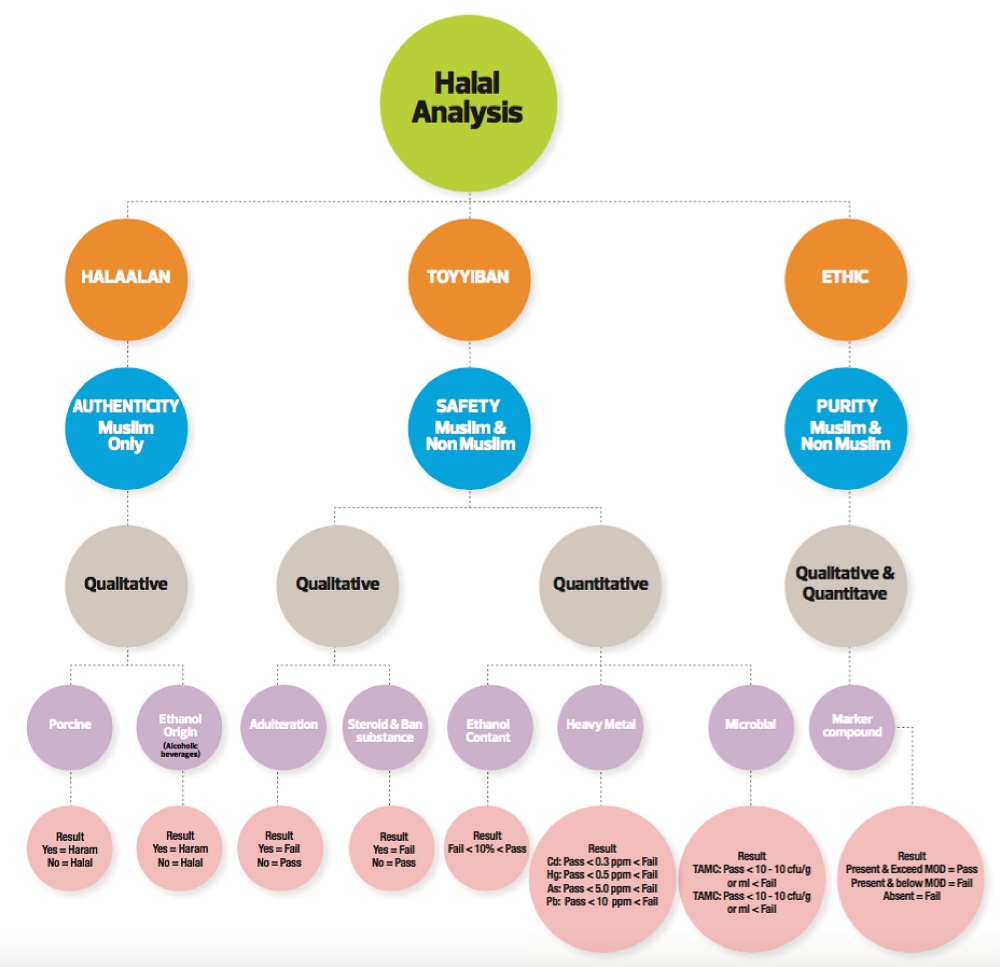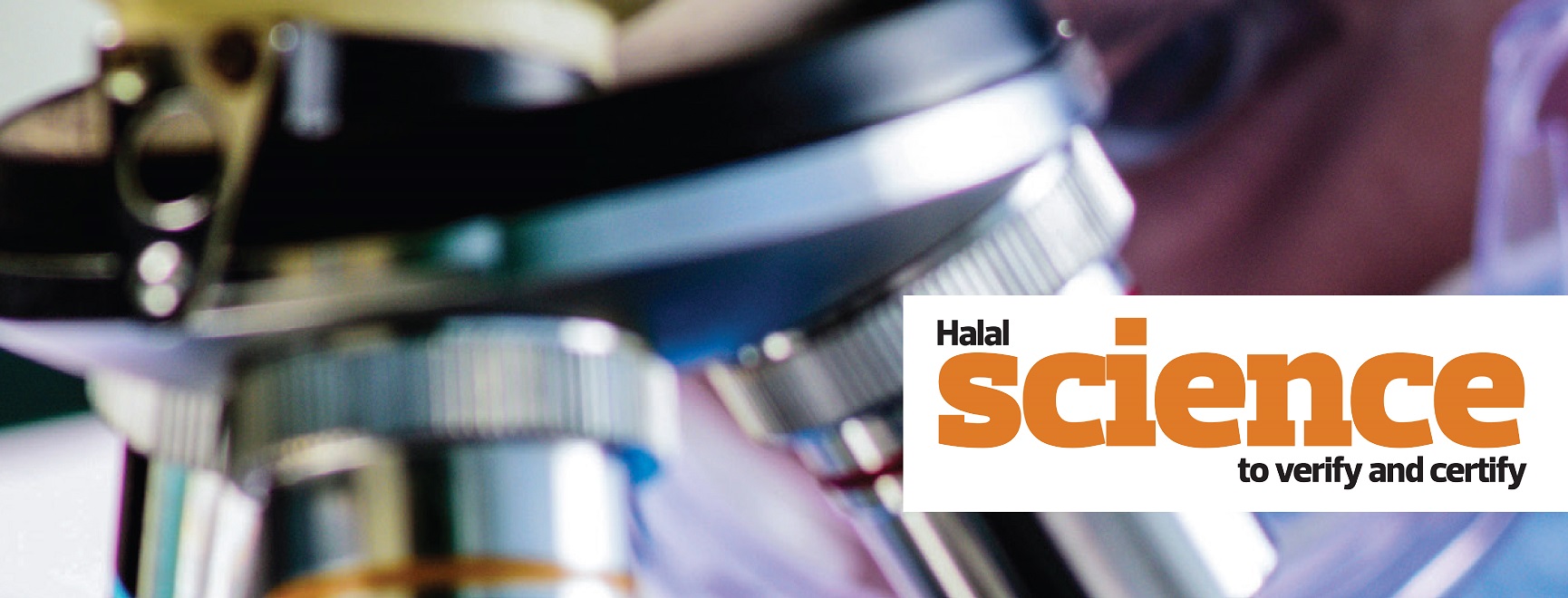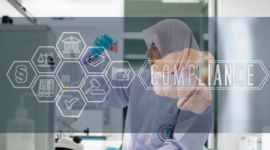02 Jul
2021
Halal Science to verify and certify
 |
NOR AMIN Chairman,Global Haltech |
Halal across region and religion |
THE concept of Halal is very crucial in Islam, and a very sensitive issue for Muslims. The need for Muslims to consume only halal products, coupled with high commercial and economic value, has made the halal industry to become one of the fastest growing industry.
For this reason, the halal concept should be taken seriously by the authorities. For Muslim consumers, approval and monitoring of local or imported products to clarify whether the product is halal or not is very important.
For a product to be deemed halal, the ingredients are to be scrutinized. And although the product may be manufactured or owned by Muslims, it is good to monitor and confirm of its halal status through scientific approaches.
Recently, there has been many doubts on products being either halal or not, especially ones without any halal logo on its packaging. And many who doesn’t have it are because of the complicated formulation and technology used during the product manufacturing.
Thus, many aspects such as controlling, enforcement and monitoring are needed to maintain the quality of a product as stated in product labelling, and to feature the halal logo for Muslim consumers.
This is to ensure that no persecution and misappropriation will occur to Muslim consumers especially in Malaysia.
SCIENTIFIC ASPECT IN VERIFICATION AND MONITORING OF HALAL STATUS
Verification and monitoring of halal status of a product falls under responsibility of the authorities such as JAKIM and Jabatan Agama Islam Negeri (JAIN).
However, the halal status of a product will be more convincing with proof, i.e. scientific results.
These days, most manufacturers uses complex and complicated formulation of recipe and imported ingredients for their food product. Thus, verification of the ingredients of the product through laboratory analysis would really assist the auditing process in factories.
This also helps to weave out issues where manipulation and irresponsible attitude of certain manufacturers without integrity in ensuring that their ingredients are truly free from porcine DNA. Thus, raw materials used in their products shall be verified through laboratory analysis.
In Malaysia, there has been many issues regarding the halal status of products that has been certified halal by the authorities through such investigation.
These uncertainties among Malaysians on the halal-ness of popular products on shelves shows that manufacturers absolutely need continual monitoring of their product’s halal status – backed by lab analysts.
ROLE OF HALAL SCIENCE
The role of halal science laboratory is essential in determining the halal status of raw materials in products. It works as a reference
and a source of scientific evidence in halal product verification.
The framework of halal basically consists of 3 main sectors that come together with laboratory results in halal enforcement. The
three main sectors are: The Authorities: JAKIM, JAIS and Non-Government Organization (NGO) such as PPIM as the halal monitoring authorities.
They will use the results of lab analysis to fulfill the requirements of halal certification when auditing the product. Industry: Manufacturers of food products or consumables. Industry needs results of lab analysis as reference to ensure that ingredients
of their products are free from forbidden (haram) ingredients.
Consumer: Consumers who uses and consumes the retailed products. Some of the more particular consumers always want to know
lab analysis results to ensure that the product that they consume is truly halal, and that they are not being deceived by irresponsible
manufacturers.
This puts the role of laboratories as a necessity, an additional reference by the three main sectors above to secure halal certification
in an efficient and high integrity manner. Moreover, the value of a halal Logo can be put as high standard level of quality which can
fulfill the demand of Muslim consumer and also the Syariah of Islam itself.
ROLE OF HALAL ANALYSIS
Verification of halal status is governed by the ‘Halaalan Toyyiban ethic’ which is a scientifically proven ethical code.
Halal verification plays an important role based on the result of lab tests which verifies the ingredients of the product to be free from ingredients that are haram. However, analysis being done on the ingredients doesn’t solely focus on alcohol and porcine DNA presents, but also on the safety and purity of a product.
To simplify, a Halaalan test is a lab test to determine that the product either has pork and alcohol in its ingredients or not. A
Toyyiban test on the other hand, is a lab test to investigate the occurrence of hazardous substances that might be of harm to our
health. These are defined by the idea of Ethic, whereby the tests are to ensure that the product’s quality is up to par in its purity, and is worth every penny the customers have spent on it.
In the process flow of a halal certification, the role of lab analysis for ‘Halaalan Toyyiban Ethic’ test is important, especially when it
comes to ensuring whether ingredients to be used are of plant or animal (and whether it is of pork) origin. This is because crosscontamination can occur during storage and the delivery of the ingredients to manufacturers. There is also an issue whereby the use of additives from animal origin in products are not being stated clearly.
This is why lab tests are important. Ingredients used in products can be convincedly confirmed through lab analysis, and ensuring the ingredients themselves are halal before being processed to a finished product.

Process flow of a halal certification, the role of lab analysis for ‘Halaalan Toyyiban Ethic’ test is important, especially when it comes to ensuring whether ingredients to be used are of plant or animal (and whether it is of pork) origin.
“Halal verification plays an important role based on the result of lab tests which verifies the ingredients of the product to be free from ingredients that are haram.”
CONCLUSION
The science of halal has to be comprehensively planned and defined for a clear direction in promoting halal products. It is important that halal certifications awarded to any local or international products has been fully verified down to its DNA, and that it is
in fact, halal.
The integrity of product manufacturers should also be verified and monitored. Halal science practices and JAIS’s strict concerns in certification and monitoring of products on the market can be harnessed to make halal certification in Malaysia the best of its kind.
Halal certification processes supported by proper scientific proof should be a benchmark for all local and international halal authorities. With use of halal science, we hope to strengthen Halal integrity and continuously supports halal assurance system for Muslim consumers and be blessed by Him on this sincere effort. That is the importance of halal science. That is the value of a halal logo. That is the beauty of Islamic rules.
TRUST BUT VERIFY.






